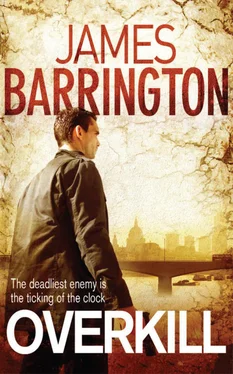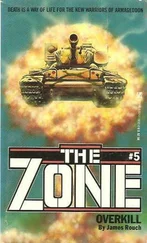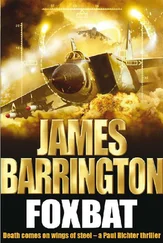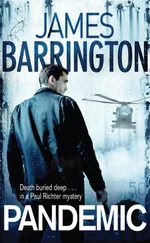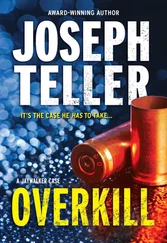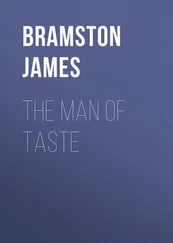‘Roger Abrahams and John Westwood took the chair, as it were, and told us a very interesting story. It’s a story at the moment without an ending, which is why you’re all here now. The CIA needs our help, for reasons which will become clear later.
‘First, a history lesson, which I’ll keep as brief as possible. Following the accession to power of Gorbachev and Yeltsin, the entire fabric of Russian society changed. The nation opened up to the West and to Western ideas, but this actually created more problems than it solved with, for example, member states of the former USSR breaking away to try to do their own thing. Names like Chechnya, Kazakhstan and Uzbekistan entered the languages of the world, usually associated with violent protests against Moscow and Russia.
‘Obviously nobody anticipated the Westernization of Russia would proceed without difficulties, but there were actually far more obstacles than anyone expected. Instead of the optimism that might have been expected, a significant proportion of the peoples of the Confederation of Independent States began protesting against the new regime. Their argument, reduced to its simplest form, was that although things had been bad under Communist rule, at least everybody knew where they were and what was going on. Under Gorbachev and Yeltsin, the situation was entirely new, and they felt cut adrift, their normal points of reference removed. This mood led to the attempted coup against the new leaders.
‘That,’ Simpson said, ‘is the history. The CIA has maintained intense surveillance of Russia throughout this period, and has come up with some interesting data. First, overt defence spending in the former USSR has slowed considerably. The CIA and all other Western intelligence services have noted a reduction in the build rate of combat aircraft, submarines and ships, and a lot of building has stopped entirely. This should have freed significant amounts of capital into the general economy, but neither the CIA nor anyone else has been able to detect any evidence of this. The queues outside the shops in Moscow are just as long – in fact, most of them are a lot longer – and the food shortages are just as apparent. What the CIA has been trying to find out is where the “spare” money has been going.’
Simpson glanced round the table again. ‘The CIA has come up with a controversial hypothesis. If it is assumed that actual defence spending is the same as previously, then the secret development of a new weapon is a real probability. Further, if this hypothetical new weapon is sufficiently unusual that it makes existing weapons obsolete or nearly so, then it is possible that glasnost is just a front to lull the West into a false sense of security, and that Russia is actually planning some kind of first-strike against us.’
American Embassy, Grosvenor Square, London
‘We’ve heard from SIS,’ Roger Abrahams said, closing the briefing room door behind him.
‘And?’ John Westwood looked up from the file open in front of him.
‘And nothing. Officially, the Secret Intelligence Service regrets that it is unable to assist, but requests that we keep Piers Taylor fully informed.’
Westwood considered this. ‘“Unable to assist” – does that mean that they can’t, or that they just won’t?’
Abrahams shrugged. ‘Whatever. It could be either, but my guess is that they can’t. Either way, we’re going nowhere here. Do you want me to keep Taylor in the loop?’
Westwood nodded his head. ‘Yes. The directive from Langley was clear enough about that,’ he said. He slapped the file closed and looked at his watch. ‘I’d better talk to Langley, and now I’ll have to go see the French. Signal the Paris Chief of Station that I’m coming, and then get me on a flight to Paris tomorrow morning.’
Hammersmith, London
There were sharp intakes of breath around the table and two people started to ask questions. Simpson stopped them. ‘Questions later. I should say that I don’t personally subscribe to this first-strike theory, and I would normally assume that it’s just the usual CIA paranoia. However, the killing of Newman, the attempted assassination of Richter, and the vaporization of a hill in the tundra have to be considered. We can ignore none of these. Something is definitely going on, and we are going to find out what. The Americans have come to the same conclusion as us about the bomb used to vaporize the hill, according to John Westwood. They believe it’s a new weapon, but not one offering an unusually high yield. That appears to be the limit of their knowledge. They don’t know how it works or what its significance is.
‘The final point is the most important, and is the real reason why Westwood is here in Britain. The CIA has acquired a high-level source in Russia, and this source claims that some form of covert assault against the West has actually been launched by Russia.’ In the silence which followed, Simpson held up his hand, and began ticking points off on his fingers. ‘To save time, I’ll run through the obvious questions, and what we believe the answers are.
‘First, the “first-strike” option. I don’t believe – and I don’t think the CIA really believes – that this actually is an option, despite this covert assault business. Whatever the type of bomb, it still has to be delivered, and all Western defence systems are designed to detect not only weapon launches, but all the build-up beforehand. We simply could not fail to be aware of the increased ballistic missile submarine activity, higher alert states at bomber airfields, missile bases and so on that would have to be a precursor to a first-strike. So, if the Russians are planning something sneaky, it has to involve an unconventional delivery system.
‘Second, the bomb itself. A bomb is a bomb. It goes bang and causes damage; everything else is a question of degree. The seismograph records – both the ones we have seen and those acquired by the CIA – indicate that although this weapon has some unusual characteristics, its yield is about the same as a small to medium-sized conventional nuclear bomb, around five to seven megatons, so it’s difficult to see what advantage could be gained by its use, rather than a weapon which already exists.’
Richter put his hand in the air. Simpson looked at him, then nodded. ‘The other thing my CIA source emphasized was that the radiation detectors on the Blackbird gave nil results,’ Richter said. ‘Whatever the weapon was that the Russians used, it didn’t emit the fall-out that a conventional nuclear bomb would have generated.’
After a short silence, Simpson nodded and spoke again. ‘Oddly enough, neither Roger Abrahams nor John Westwood mentioned that, and they really should have known about it, shouldn’t they?’
‘If my source knows,’ Richter replied, ‘they know, no question. I know John Westwood,’ he added, ‘and he’s sharp and very competent. If he didn’t tell you, it’s because he didn’t want you to know.’
The Intelligence Director stirred uncomfortably and offered a contribution. ‘That data, if substantiated, could radically influence any subsequent actions taken by the Russians.’ He always talked as if he was delivering a lecture to a class of university students. ‘MAD – Mutual Assured Destruction – was predicated on the twin premises that any aggressive action would be matched by retaliation in kind, and that no nation could survive the nuclear winter that would follow any significant exchange of nuclear weapons. The nuclear winter, of course, would be caused primarily by the radiation products of the weapons themselves. If you remove the radiation, to some extent you remove the nuclear winter.’
Simpson nodded agreement. ‘True enough, but that somewhat misses the point. If the Russians have developed a radiation-free weapon with a yield equivalent to a normal fission or fusion weapon – a kind of strategic neutron bomb, in fact – and if they equipped their armoury with it, that could actually encourage the West to launch a pre-emptive attack. If we take that scenario to its logical conclusion, the West would be able to lob bombs willy-nilly on to the Russian landmass, rendering it uninhabitable for possibly centuries to come, whilst the Russians would only be able to retaliate by launching what would amount to very large conventional weapons. In other words, if Richter’s informant is correct, the development and deployment of such a weapon would actually disadvantage the Russians.’ Simpson paused and drummed his fingers on the table. ‘We’re missing something here, and I don’t mind admitting that I don’t know what it is.’
Читать дальше
